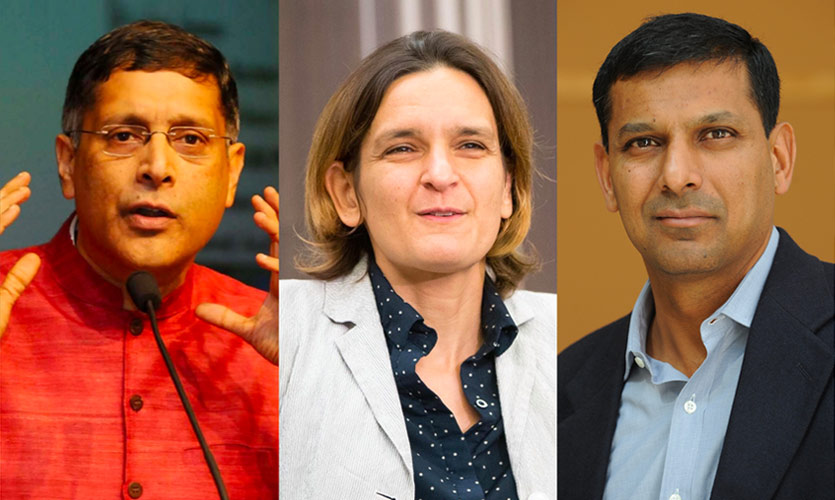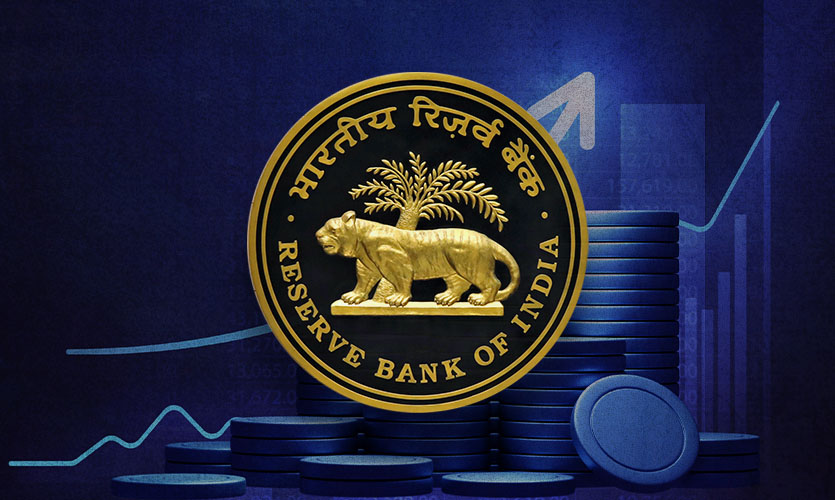The Tamil Nadu government has assembled a team of five economic experts who will chalk up policies to help revive the state’s debt-ridden economy. The Economic Advisory Council has been tasked to analyse and provide advice on any issue of economic and social policy referred by Tamil Nadu’s Chief Minister M.K. Stalin or Finance Minister P.T.R. Palanivel Thiagarajan of the Dravida Munnetra Kazhagam (DMK) party.
The five member advisory council comprises the Nobel laureate economist from the Massachusetts Institute of Technology (MIT) and co-founder and co-director of the Abdul Latif Jameel Poverty Action Lab – Esther Duflo, former Reserve Bank of India governor Raghuram Rajan, former Chief Economic Advisor (CEA) to the union government Arvind Subramanian, development economist from the Delhi School of Economics Professor Jean Dreze, and former Finance Secretary and retired Tamil Nadu-cadre bureaucrat S. Narayan.
Governor Banwarilal Purohit, at the first session of the 16th Tamil Nadu Assembly, announced the formation of the council – likely the first of its kind in the country. “Based on the recommendations of this council this government will revitalise the state’s economy and ensure that the benefits of economic growth reach all segments of society. The government will focus on improving the fiscal position and bringing down the debt burden,” said Purohit in his address.
A State Of Debt
Tamil Nadu has often been criticised in the past for its populist schemes that offer freebies – laptops, free rice and home appliances, however, the state government has defended that these freebies are imperative to their welfare schemes. With outstanding liabilities of ₹5.12 lakh crore in its budget estimates for 2020-21, an RBI review of state budgets that was put out last October states an increase of 124 percent compared to the ₹2.28 lakh crore deficit in 2015-16. The persistent high revenue and fiscal deficits, and a large overhang of debt following the economic slowdown and COVID-19, have crippled the state in financing its welfare schemes.
Since the switch to Goods and Services Tax (GST) and incorporation of rigid restrictions on borrowing, many state governments have struggled with their GST dues being met by the Government of India. This has impacted the state governments’ respective fiscal armouries, with Tamil Nadu having to borrow its GST compensation owed by the union government. “TN is driven to borrow Rs. 6,229.05 crore as the amount payable to TN towards balance GST Compensation of Rs 6,241 cr for the period April-May, 2020 and for the full period June’20 –Jan’21 is not paid by Center,” said DMK Rajya Sabha MP P. Wilson in a tweet.
The Council’s Duties
The Economic Advisory Council is expected to reduce the overall debt burden and improve fiscal position by devising a rapid and inclusive growth plan as the state witnessed an economic slowdown in recent years. According to a Government Order (GO) issued after the announcement, the committee will provide general guidance on economic and social policy, social justice and human development-related issues in particular matters related to empowering the marginalised by providing equal opportunities for women and the well-being of underprivileged groups. The council as per the terms of reference in the GO issued by the government said that the members may, suo moto or on request from the chief minister or finance minister, provide specific inputs.
The first step is to release a white paper detailing the state’s finances, which will be released in July to educate the people on the current state of affairs. Purohit assured that the highest priority of the government is to provide a clean administration and public services. The Right to Services Act and a Lokayukta civil commissioner will facilitate this.
Pros And Cons
Forming the council has received praise from experts and the general population, many praising the efforts of the DMK government for bringing in the dream team to create a structured approach to economic policymaking. “The Tamil Nadu Economic Advisory Council is a much-needed organisation that bridges economic expertise with policy action and political goals. In a line, this is the expression of intellectual centrifugal forces functioning within the unique aspirations of subnational entities and the confines of a centripetal force operating from New Delhi. These two forces need to bring synergies of economic equilibrium that, while powering the State strengthens the Union; the part supporting the whole; the whole the part.” said Gautham Chikermane, Vice President of Observer Research Foundation, an independent global think tank.
Chikermane suggests exercising caution about some of the council members’ ideological leaning, political inclination and their proven proclivity to use their public office to fight ideological battles. According to him, the government needs to be very careful while working with them and must take their advice with adequate caution.
In the recent past, Raghuram Rajan and Esther Duflo have both criticised the centre for its handling of the pandemic, with Rajan criticising the Indian government’s “lack of leadership” and “complacency” for the COVID mess. Similarly, Duflo and her husband, economist and Nobel laureate Abhijit Banerjee, stated that the sudden nationwide lockdown imposed last year and the resultant migration of poor people from cities to their villages by walking hundreds of kilometres on foot was a “pure plumbing failure”.
Last year Arvind Subramaniam in an opinion piece co-authored with Shoumitro Chatterjee pointed out flaws in the Narendra Modi government’s Atmanirbhar Bharat initiative. In an interview with PTI, Jean Dreze also warned that India might be heading towards a “serious livelihood crisis” as the situation seems to be worse this time for the working class amid the COVID crisis and local restrictions by states. He also said the government’s target to make India a USD 5 trillion economy by 2024-25 was never a “feasible target” and was just to pander to the “superpower ambitions” of the Indian elite.
In the past, there have been instances where noted economists have served as economic advisers to the chief minister. Critics note that some experiments have been a complete failure as ideas put on the table by these top economists seldom get local acceptance. The contradiction in viewpoints is expected to happen especially since politicians depend on populism to appease voters without thinking about the bigger picture and thus, leaving economic advisers handicapped when getting their policies approved.
Read more: Centre Plans To Auction Undeveloped Oil Fields Amid Low Recoveries
In 2016, Kerala Chief Minister Pinarayi Vijayan appointed Gita Gopinath as the CM’s economic adviser. This decision had ruffled feathers within the Kerala Communist Party. Many communists within the party claimed that Gopinath was advocating for so-called neo-liberal economic policies, hinting at an evident ideological difference between the party and the economic advisor. Gopinath later resigned as she was hired as Chief Economist of the International Monetary Fund.
However, the story of Kerala need not necessarily be related to Tamil Nadu. The Stalin led government has shown his commitment to improving the poor economic state of Tamil Nadu by appointing Finance Minister Palanivel Thiagarajan – an MBA in Finance from the Sloan School of Management at MIT and a Wall Street veteran. According to Thiagarajan, the council was not a “traditional” one-time report submitting committee that is commonly appointed by governments. “The composition of the committee reflects the economic and political philosophies of the DMK as it has members who have proven track records of working for the underprivileged. They will share their expertise and insights with us. These dedicated individuals will advise the government on various issues individually or collectively, pro-actively or in response to our request,” he told the Deccan Herald. Experts promise that the advisory council will be different from the past appointments.
Only time can tell if Stalin’s dream team will achieve tangible results. Nevertheless, this is a step in the right direction as states have to get accustomed to the new normal and past policies will not work. States will require new creative ideas, implant new systems and work towards an equitable future. The Tamil Nadu model is a cue for other states to follow suit and for the union government to take note and incorporate new learnings.










